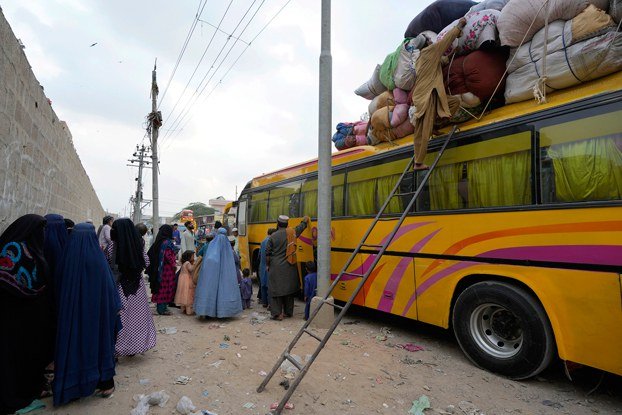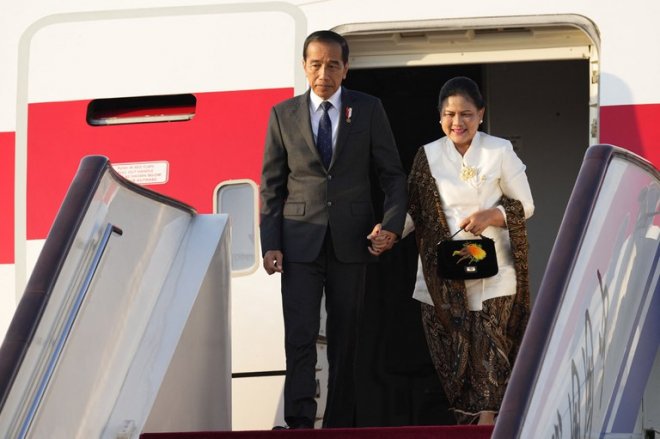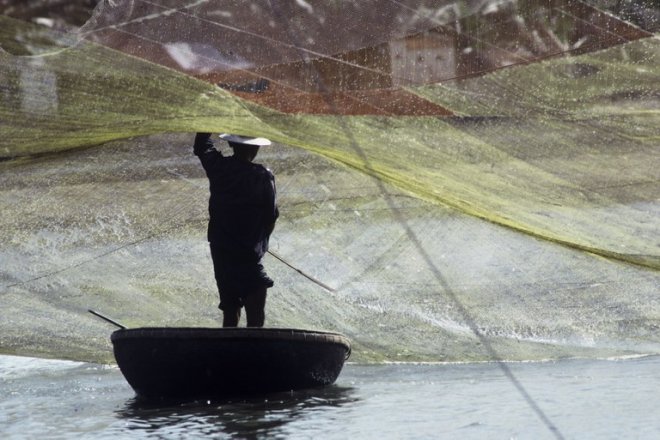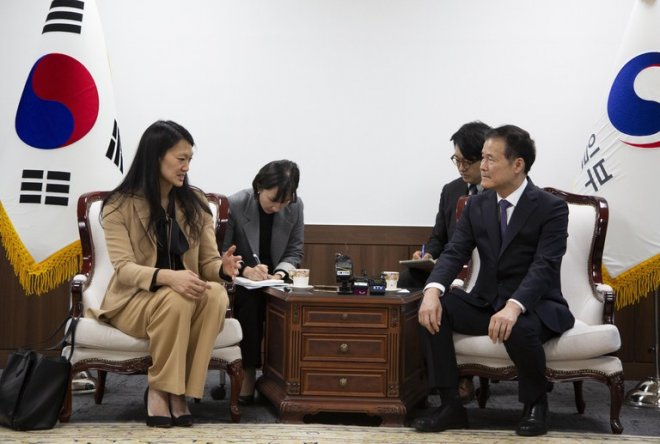Fiji election’s kingmaker party favors Australia, New Zealand as allies over China
The leader of the kingmaker party in Fiji’s election says he doesn’t support forming a security relationship with China, preferring foreign relations to be closely aligned with Australia and like-minded countries in the Pacific region.Fiji’s Social Democratic Liberal Party, known as Sodelpa, holds the balance of power after neither of the two major parties won an outright majority in Wednesday’s election, potentially ending Prime Minister Frank Bainimarama’s 16-year rule.
Viliame Gavoka, leader of the predominantly indigenous Fijian and Christian Sodelpa, began coalition negotiations after official results were released on Sunday.
“Our relationship in foreign affairs will be aligned closely to Australia, New Zealand, a lot of the members of the Pacific Islands Forum, but primarily with the traditional partners,” Gavoka told a press conference on Sunday.
“Our relationship with China will be guided by the Australian, [and] the New Zealand governments. We’ll relate to China as a [Pacific] region,” he said.
Over the past two decades, Beijing has amassed substantial goodwill with economically lagging Pacific island countries by building infrastructure and providing other assistance.
Fiji’s relations with China particularly burgeoned after Bainimarama overthrew the elected government in a 2006 coup, but a close security relationship with the United States and its allies has continued. Australia and New Zealand had initially sought to isolate the unelected Bainimarama government internationally.
The Solomon Islands earlier this year signed a security pact with China, alarming the U.S. and Australia.
It switched its diplomatic recognition to China from Taiwan in 2019, and Beijing is bankrolling the Pacific Games, which will be held in the Solomon Islands capital Honiara in November next year.
“I know the Solomon Islands have gone out a bit and done the security thing with the Chinese,” said Viliame. “We won’t do that. We will go with the traditional partners Australia and New Zealand.”
Fiji’s election pitted Bainimarama’s ruling Fiji First Party against the opposition People’s Alliance Party led by nationalist Sitiveni Rabuka – the architect of coups in the late 1980s that aimed to preserve the political power of indigenous Fijians, who feared being outnumbered by the Indian Fijian population.
The proportion of Indian Fijians has dropped to about 38% from 50% in the 1980s because of emigration spurred by the coups.
Fiji First’s share of the vote in Wednesday’s election slumped to 42.6% from 50% in the 2018 election. People’s Alliance secured 35.8% and the National Federation Party allied with it got 8.9%. Sodelpa won 5.1% of votes, scraping in above the threshold for seats in parliament.
Bainimarama abolished a race-based voting system following his 2006 coup and Fiji First has commanded support from indigenous and Indian Fijians.
Recently the party’s popularity has been challenged by the economic fallout of COVID-19 in tourism-reliant Fiji, high inflation and aggressive legal tactics against opposition parties.
Viliame said Sodelpa’s non-negotiable demands for a coalition government include indigenous Fijian rights, free university education, and the opening of a Fijian embassy in Jerusalem.
“Fiji is predominantly a Christian country and it has always been the wish of the Christian community to have a presence in the holy land,” he said.
“Christian principles will be the mainstay of our policies,” Viliame said.
“We have a secular state today in Fiji but it gives you room to be who you are and we’re very much a Christian people so that will be dominant in the way we do things as a government.”
Fiji has had four coups since independence in 1970, partly a legacy of British colonial policies that restricted the economic activities of indigenous Fijians while bringing tens of thousands of indentured laborers from India in the late 19th century and early 20th century.
The first two coups led by Rabuka, then a lieutenant colonel, highlighted the divisions that had developed in Fiji over decades. The coups followed the election defeat of a predominantly indigenous Fijian political party in 1987.
BenarNews is an RFA-affiliated news service.
[圖擷取自網路,如有疑問請私訊]
|
本篇 |
不想錯過? 請追蹤FB專頁! |
| 喜歡這篇嗎?快分享吧! |
相關文章
AsianNewsCast






















